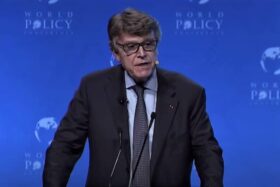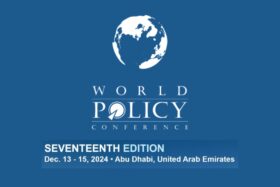I am writing this seventh letter on Sunday, November 8. Yesterday, the world press proclaimed the victory of Joe Biden and Kamala Harris. However, Donald Trump has filed lawsuits in several states, which few people believe have any chance of succeeding. At this point, then, the present occupant of the White House can be said to have joined the narrow circle of one-term presidents. Other immediate observations come to mind. The Blue Wave heralded by the polls failed to materialize. Not only that, but Biden beat his opponent by a razor’s edge in the swing states, hence those lawsuits. The Democrats fell short of their goals in the Senate and the House of Representatives. There is more talk about the triumph of the Biden-Harris team than the success of one man, who led a lethargic campaign. This is a key point, for the new president looks frail and odds are that California’s former Attorney General will move into the White House in four years, if not before.
However, unlike his former opponent in the primaries, Ms. Harris psychologically belongs to the New World, far from Europe but close to Asia, where the competition for global supremacy between the United States and China is being played out. In that world, Europeans might be relegated to supporting roles. Because of his age and personal experience, the president-elect remains attached to the Atlantic Alliance, as do some of his advisors, such as Anthony Blinken, who is well known in France. But clear-headed observers are aware that, since at least the beginning of this century, Europe has steadily faded in the minds of American foreign policy-makers. I will add two more remarks before dipping into that topic. First, the November 3 election’s outcome does not by any stretch of the imagination mean that the rifts in American society have been healed. The 46th president of the United States is undeniably a man of good will but he is not a magician, far from it, and the reasons for America’s divisions, which I talked about in my last letters, run deep. Incidentally, the Democrats’ relative failure in the Senate and the House of Representatives could help the new president hew to the center, as Kamala Harris would not like him to do. The really important point is that Trumpism remains a force to be reckoned with in the US. Trump himself could continue to embody it in the next few years if he does not go off the rails in the next few weeks. In that regard—and this is my second remark—I am pleased to say that the outbreaks of violence predicted by many analysts in the election’s aftermath did not occur. True, that would not be in the outgoing president’s interests, if he is at least thinking of preserving his political capital, whose magnitude is undeniable.
Obviously, the Covid-19 pandemic and its multi-faceted consequences will overshadow the beginning of Biden’s first term. But foreign policy will not wait. There is no need to repeat here the dominant point of view among recognized experts on the subject, which could be caricaturized like this: a change in form (a return to classic diplomacy, the invocation of human rights and a minimalist interpretation of multilateralism) but continuity in the basic goal (“America First”) and the attitude towards partners (“you’re either with us or against us”). America’s culture of power, unlike Europe’s, weakened by two world wars, is based on strength. Rather than repeating commonplaces on these issues, let us summarize, in very broad strokes, three key points amply developed in my writings for three decades. Here I will limit myself to the European perspective.
- The most basic cause of the fall of the USSR, and therefore the end of the Cold War, was the information and communication technology revolution. This can be seen as the fruit of America’s genius for capitalism and a unique culture of mutual support between the State and companies when the national interest is at stake. That revolution has steadily gathered pace since the 1970s. Today it is symbolized by GAFA, which in a way can be considered the Trojan horse of American dominance.
- The liberal wave that submerged the world between the fall of the USSR and the financial crisis in the late 2000s, when Russia was sidelined or very weak and China still had a small economy (its GDP barely equaled that of France when it joined the WTO in 2001), first benefitted the United States, which was able to consolidate its domination over countries that cared little about national independence. That was the case of Europe, now subject to the extraterritoriality of American laws. But China also benefited. An extraordinary push in the education sector has allowed that country to skillfully use its position as a global reservoir of low-cost labor to achieve the massive technology transfers that have made its access to primacy in the 21st century a serious possibility.
- The basic reality of the next several decades will be Sino-American strategic competition, towards which the second-rank powers, like the European Union as a political unit, will have to position themselves. Trump wanted to pull out of NATO. Biden will undoubtedly want to strengthen it, i.e., in his mind, to politically and economically rally its members behind the star-spangled banner in the fight to contain China. For Europeans, who are hardly eager for a strategic rapprochement with China and who, unlike the main Asian powers, are lagging behind in the technological race, the temptation to put themselves under an American protectorate even more than they did during the Cold War could be irresistible. But with what term-long perspective and under what conditions with respect to their nearest neighbors in Eastern Europe, the Middle East and Africa? That is the question.
For now, Europeans are relishing the election of a once-again empathetic American president who will warmly welcome them to the Oval Office and elsewhere. At a time when they are facing an invisible enemy that threatens them as well as Americans, they are not alone in yearning for a respite. May the Atlantic Alliance in the short term be the first alliance against the virus. For once in its history, do we not have an opportunity to reinterpret article five of the treaty and harness all of NATO’s resources to fight the pandemic together?



